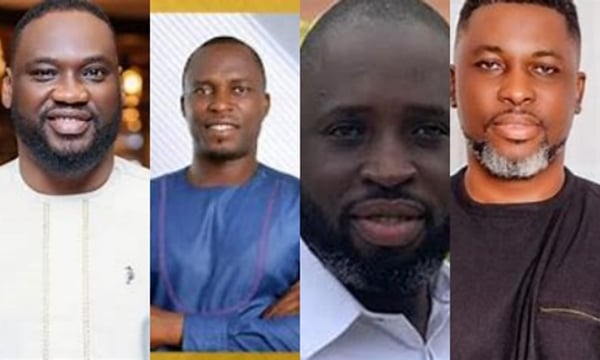The political landscape of Ghana’s Parliament has shifted with the announcement by Majority Leader, Dr. Cassiel Ato Forson, that all four independent Members of Parliament (MPs) have expressed their intention to caucus with the National Democratic Congress (NDC), effectively bolstering the majority’s ranks. This development holds significant implications for the balance of power within the legislature and the ability of the NDC to advance its legislative agenda. While the verbal commitments signify a potential strengthening of the NDC’s position, the formalization process, involving official letters to both the Majority Caucus and the Speaker of Parliament, is crucial for solidifying this alliance.
The four independent MPs, Kwame Asare Obeng (Gomoa Central), Ohene Kwame Frimpong (Asante Akim North), Nandaya Yaw Stanley (Wulensi), and Worlasi Kpeli (Afram Plains North), represent constituencies with diverse interests and political leanings. Their decision to align with the NDC suggests a confluence of factors, including potential policy alignment, constituency-specific considerations, and perhaps, the promise of greater influence within the parliamentary system. The move also underscores the strategic importance of independent MPs in a closely divided parliament, where their allegiances can significantly impact the passage or blockage of legislation.
As of January 8, 2025, only Kwame Asare Obeng, the MP for Gomoa Central, had officially communicated his decision in writing to the Majority Caucus. Dr. Forson, while acknowledging the verbal commitments from the remaining three MPs, emphasized the necessity of formal written communication to both the Majority Caucus and the Speaker of Parliament for the alignment to be officially recognized. This procedural requirement underscores the importance of adhering to parliamentary protocols and ensuring transparency in the political process. The delay in receiving official letters from the other three MPs highlights the complexities of political negotiations and the potential for shifts in allegiances.
The acquisition of these four independent MPs provides the NDC with a more secure majority, enhancing their ability to control the legislative agenda, influence committee assignments, and pass legislation. This newfound strength could prove pivotal in navigating potentially contentious political debates and ensuring the smooth functioning of the government’s legislative priorities. Furthermore, the strengthened majority reduces the potential for legislative gridlock and empowers the NDC to effectively counter any opposition maneuvers.
However, the long-term stability of this alliance remains to be seen. The motivations and political calculations of independent MPs can be fluid, influenced by evolving political dynamics, constituency pressures, and personal ambitions. Maintaining this alliance will require ongoing negotiation, compromise, and a commitment from the NDC to address the interests and concerns of these independent members. The NDC leadership will need to carefully manage this expanded caucus, ensuring that the diverse interests are represented and that the alliance remains cohesive.
The addition of these independent MPs to the NDC caucus marks a significant development in Ghana’s parliamentary landscape. While the immediate impact bolsters the NDC’s majority, the long-term implications will depend on the ability of both sides to navigate the complexities of this new political arrangement. The focus now shifts to the formalization of the remaining three MPs’ alignment and the subsequent implications for the legislative dynamics of Ghana’s Parliament. The political stage is set for both opportunities and challenges for the NDC as they navigate this strengthened yet potentially volatile majority.














